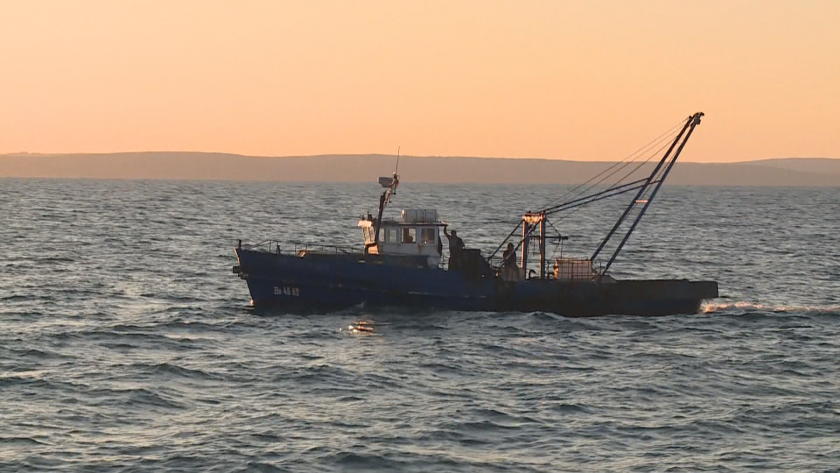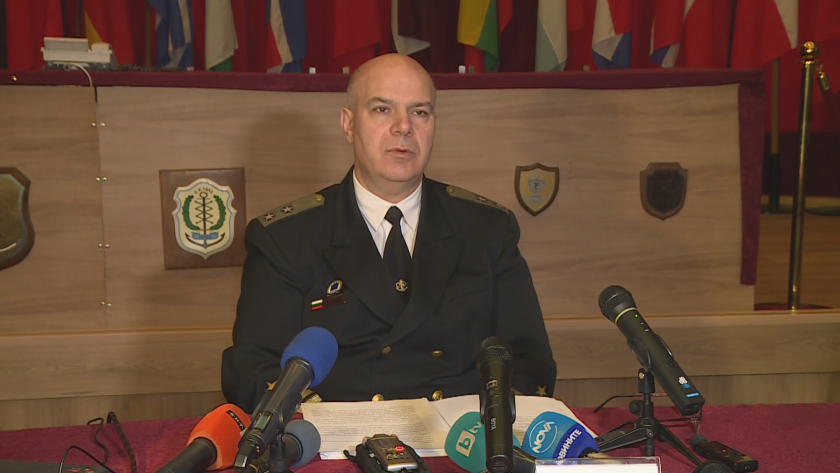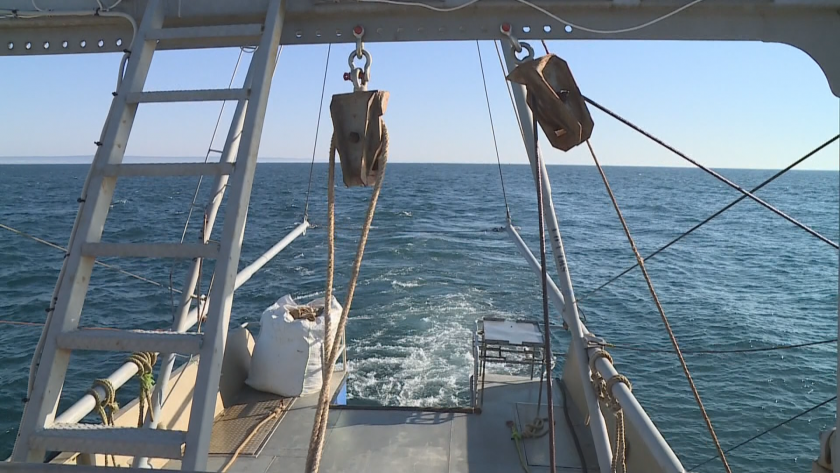
There are currently no naval mines found in the Bulgarian territorial waters of the Black Sea. There are no new alerts. Active surveillance continues, with periodic flights over the water, Navy Commander Rear Admiral Kiril Mihailov announced at a briefing in Varna on March 29
At the same time, fishermen are wary of going out to catch fish for fear of possible mine accidents.
The Navy's surveillance system works reliably and periodic flight over the water area are carried out. If suspicious floating objects are spotted, the navy is ready to respond quickly. And if it is confirmed that they are mines, they will be destroyed, the Navy Commander said.

No naval mines have been detected in Bulgarian waters so far, navy continues the watch.
The three mines already defused, two of them off the coast of Turkey and one off Romania, show that the war being fought to the north of this country is already directly affecting us in the maritime environment, Rear Admiral Mihailov said. He again urged all those who sail in the sea to report promptly if they find objects that resemble a mine.
According to the military, if mines appear in Bulgarian waters they will follow the surface current of the Black Sea and pass far from the coast.
"The current moves in a north-south direction and passes about 20 miles east of Varna and about 30 miles east of Bourgas," Rear Admiral Mihailov said.
While the alerts about two naval mines southeast of Cape Galata have not been confirmed, a total of three mines have been discovered off the coasts of Romania and Turkey. They are of the YaM type with an explosive of about 20 kg.
"The mines that were destroyed in Bosphoria and off the coast of Igneada were in a combat situation. The mine that was found by the Romanian colleagues was not in combat position with cast iron covers in place, which means it was not in combat position," Rear Admiral Mihailov said.
Chief of Defence Admiral Emil Eftimov said that floating mines are difficult to find by technical means and visual detection is the most effective. That's why the inspections were done mainly with helicopters.
"I urge all seafarers to be vigilant, we have not declared any no-go areas to navigation, as we have not found any specific information about mines in our contiguous zone," Admiral Eftimov said.
However, local fishermen are worried and afraid to take their boats out to sea.
"There is no guarantee where such a mine might be encountered. Our fishing boats mainly work during the day, they use the nights for transitions, which makes fishing super risky," says Alexander Trapchev, chairman of the “Odessos” Fishermen's Association.
"We have not worked for three months because of delays by the state administration regarding the permits, we do not know how much longer we will not work. We hope the state will declare a state of emergency and temporarily suspend fishing until the case is clarified," said Emil Milev, chairman of the “Black Sea Sunrise” Association.

The Navy urges everyone who goes to sea to be careful and if they spot suspicious objects to notify the Maritime Rescue and Coordination Centre.
***
On March 21, Russia’s main intelligence agency warned that several hundred mines had drifted into the Black Sea after breaking off from cables near Ukrainian ports.
On the same day, at a special briefing, Naval Forces Commander Rear Admiral Kiril Mihailov said that enhanced surveillance of the Bulgarian water area was being carried out.
 Българският патриарх Даниил и Вселенският патриарх Вартоломей отслужиха Света литургия в Истанбул
Българският патриарх Даниил и Вселенският патриарх Вартоломей отслужиха Света литургия в Истанбул
 Момчето с колелото срещу огъня: Историята на Даниел, който дни наред носи вода и храна на пожарникарите
Момчето с колелото срещу огъня: Историята на Даниел, който дни наред носи вода и храна на пожарникарите